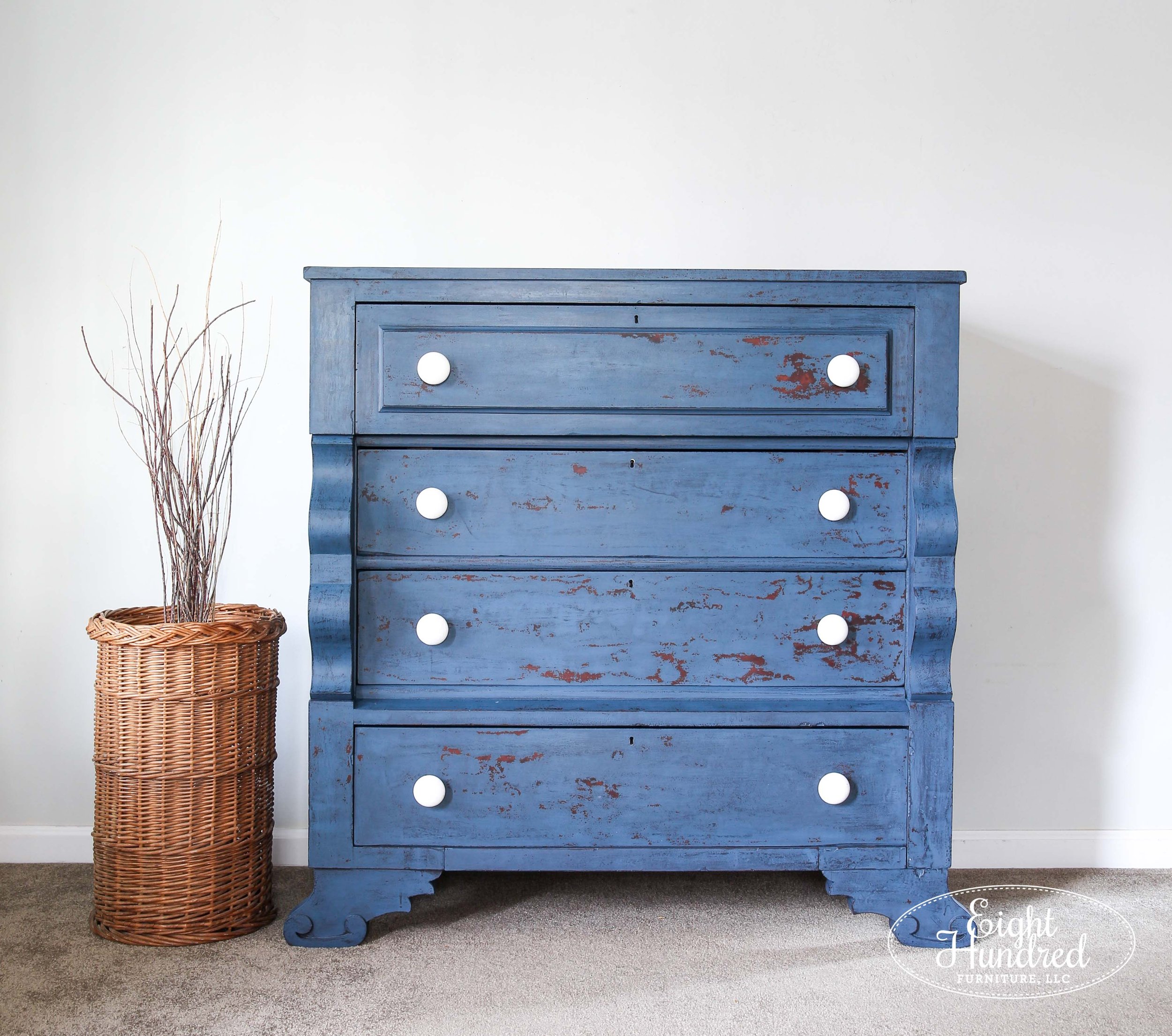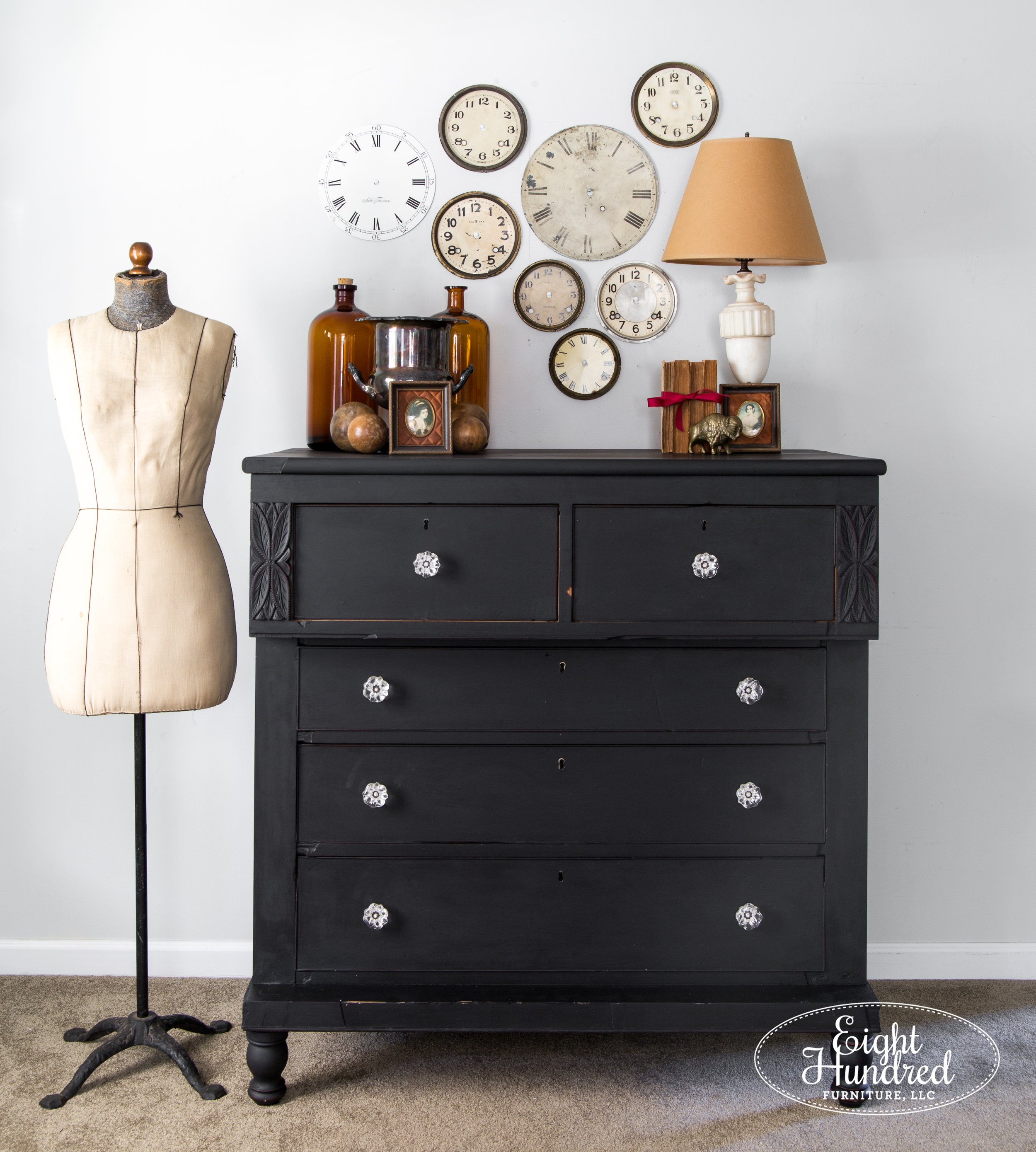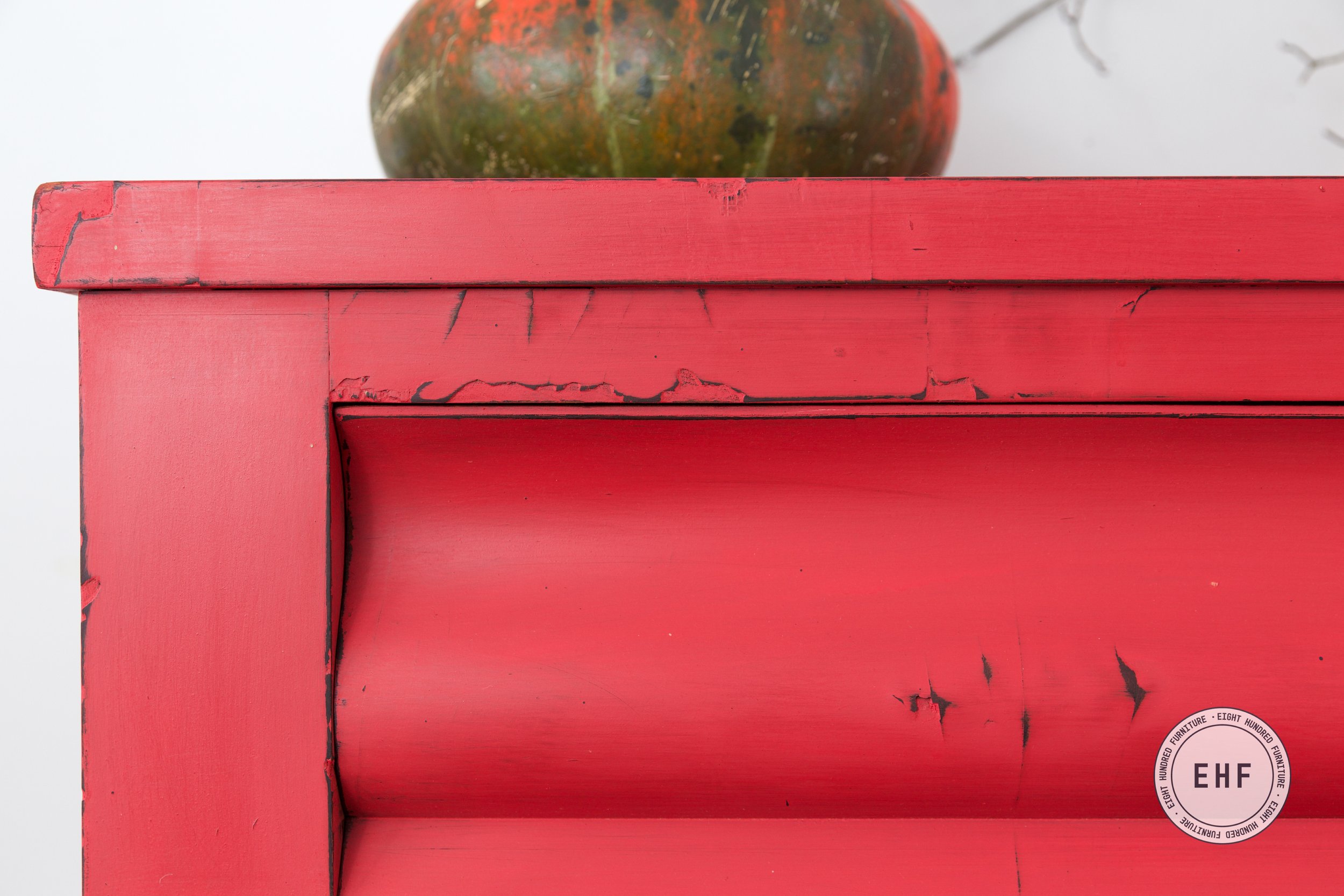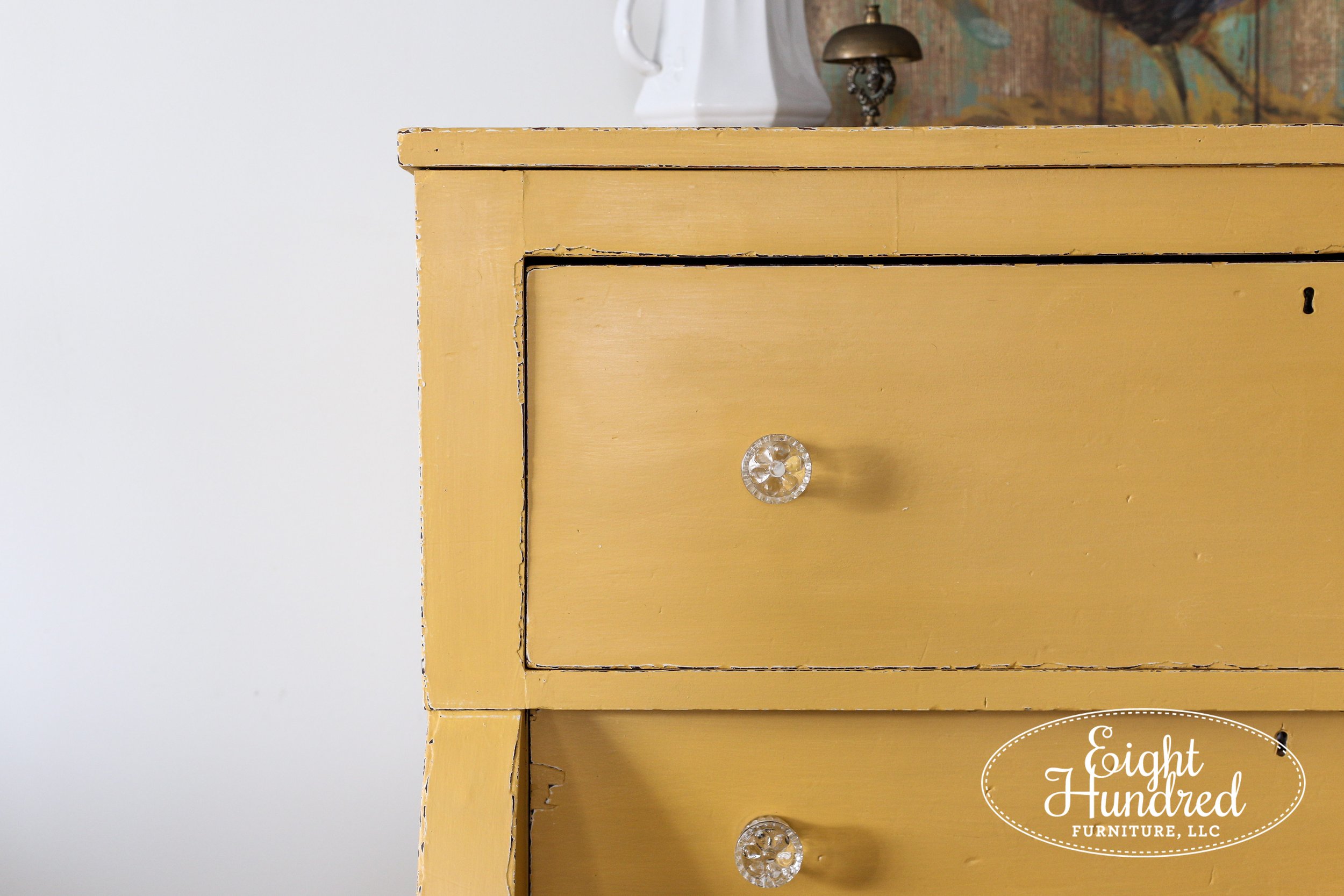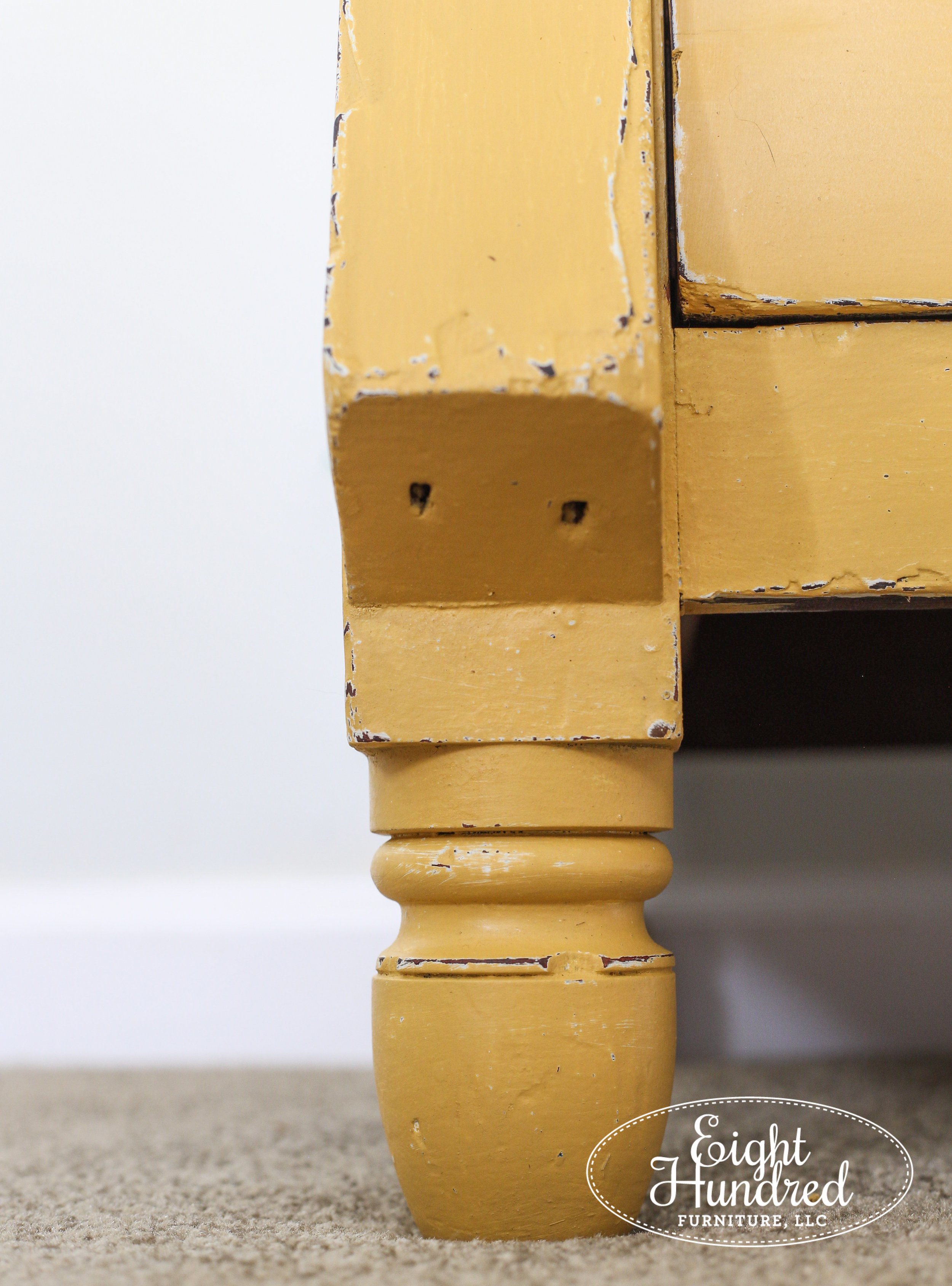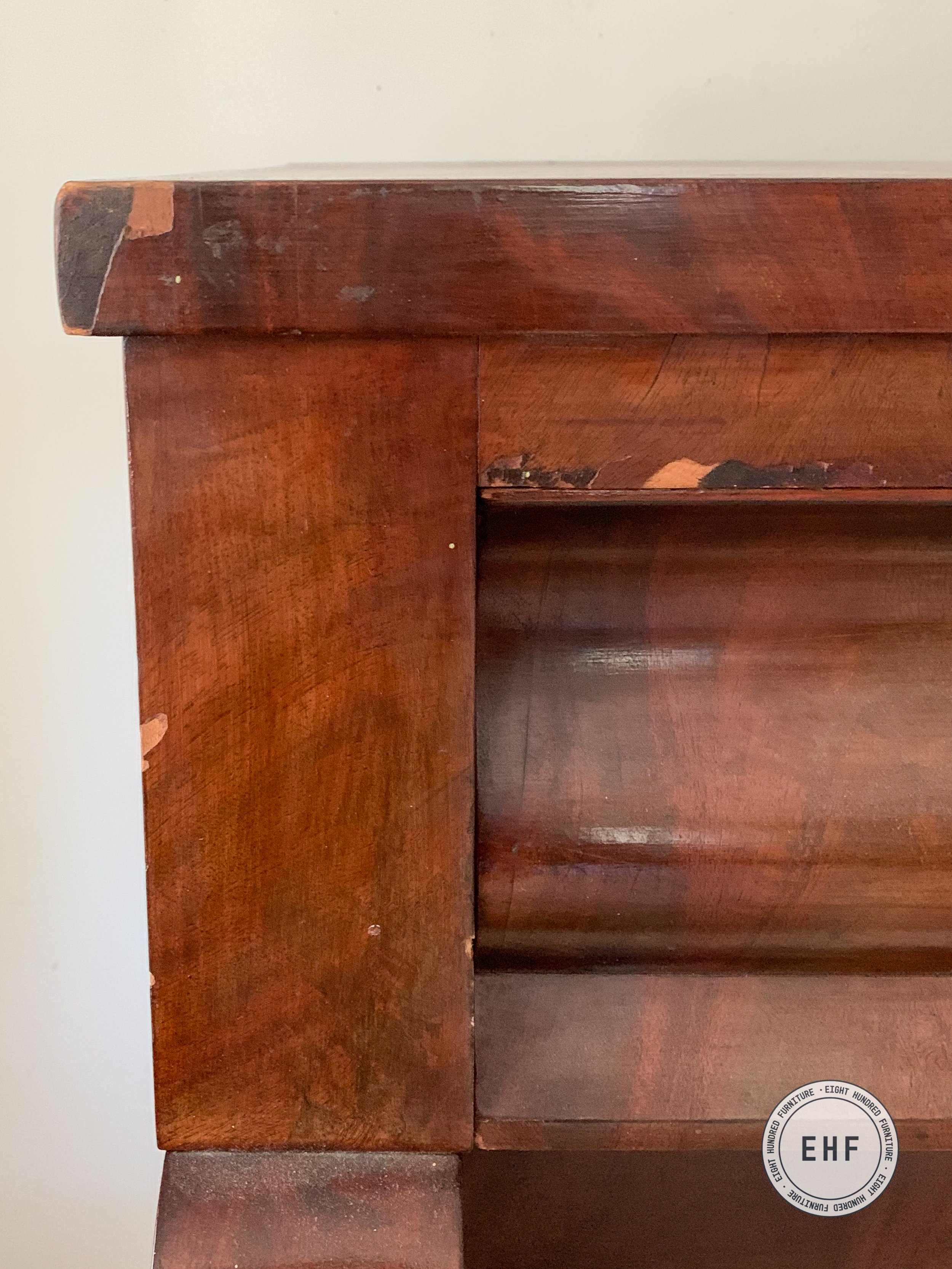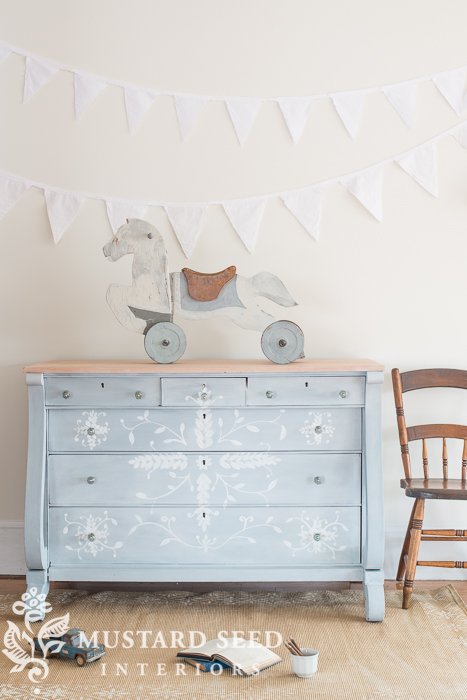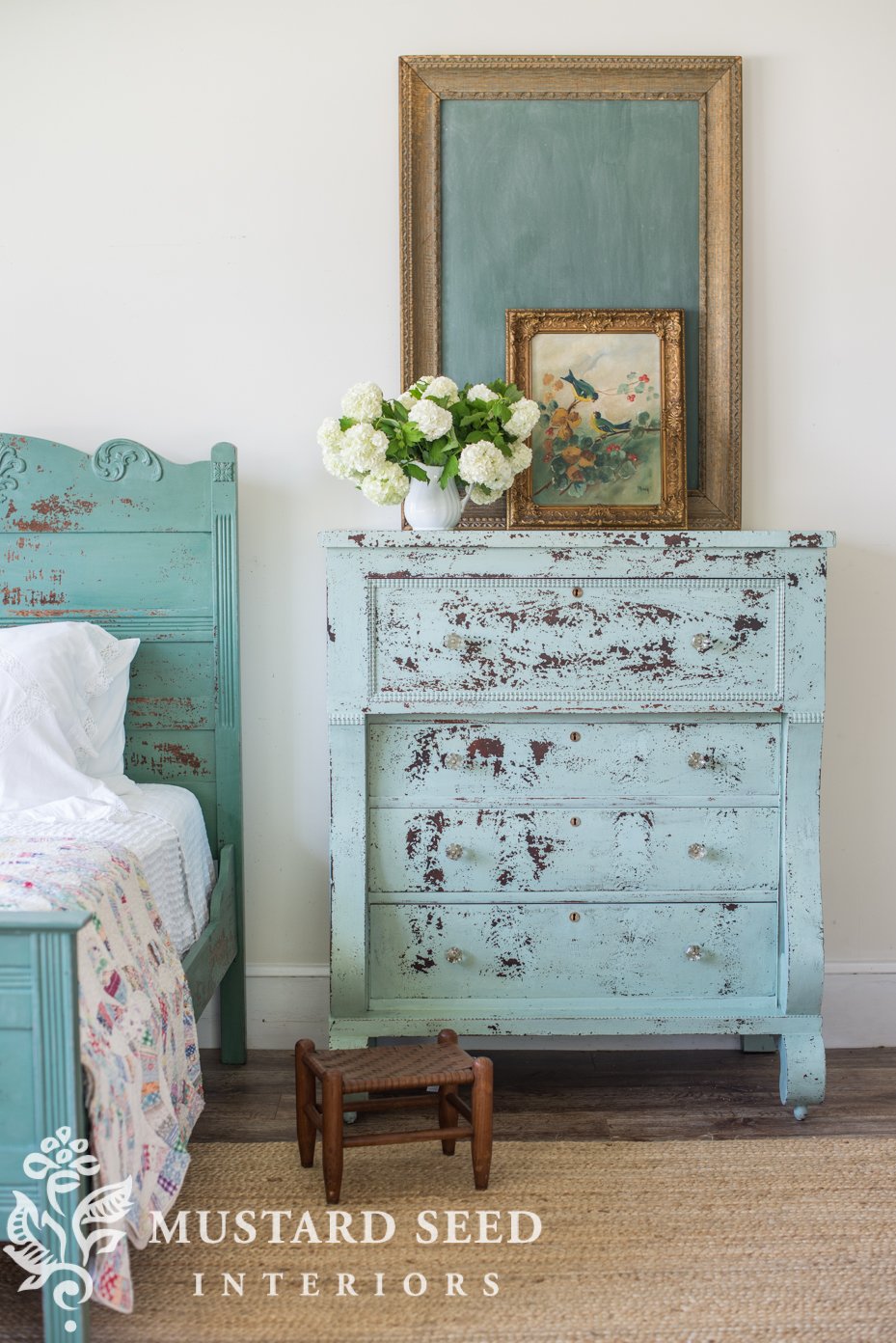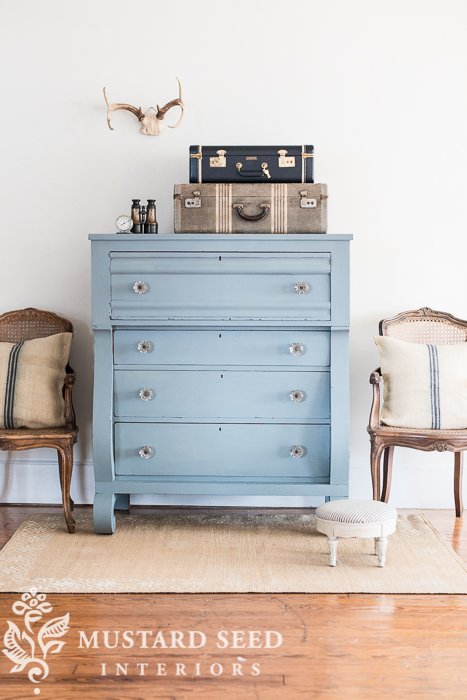Characteristics Of Empire Style Furniture
Jenn’s Furniture Refinishing FYI Series
Have you ever seen a piece of furniture that looks like this?
This style of furniture is called “empire” and it’s one of my favorites! Let’s take a stroll through some of the key characteristics of this style of furniture so you can identify these pieces in your antiquing travels.
C-Shaped Feet
Empire furniture typically has curved feet that are in the shape of a “C”.
The feet are often substantial and chunky in size. The whole feel of empire furniture is “large and in charge”, which is why it’s called “empire”! It reigns over other styles and definitely has a presence that can’t be ignored.
Now not all empire pieces have curved feet. I’ve seen pieces with turned dowel feet and bracket feet. There are variations within the style of empire, so see how many different types you can spot!
Bracket Feet
Turned Dowel Feet
Curves On The Front Sides
In addition to the curves on the feet of empire furniture, you’ll find curves along the sides on the front.
Sometimes the curves will sit flush against the main body while other times, they will gracefully extend outward like the neck of a swan.
Sometimes the top drawer is also curved as well.
The top drawer doesn’t always have to be curved. Sometimes it has a flat front. There are different variations within the category of empire furniture.
Large Tight-Fitting Drawers
The drawers on empire pieces fit snugly within their cavities. This speaks to the craftsmanship that was needed to create pieces like these. Measurements need to be precise and level for such a tight fit.
If you find an empire piece where the drawers keep getting stuck, move it to a climate-controlled area with low humidity. Wood swells in the heat and contracts in the cold, so give the piece a chance to cool down and dry out - those drawers will work just fine! You can also rub a bit of beeswax or a candle on the drawer runners to reduce the friction. Empire pieces are made out of solid wood with no metal components. The drawers are wood-on-wood so lubricating the runners makes a big difference.
Wood Veneer
Wood veneer is essentially thin sheets of real wood that are glued or laminated over lesser quality (like mahogany wood laid over tulip poplar). Sometimes you’ll find empire pieces with damaged or missing patches of wood veneer. These areas can look quite charming when they’re painted with MilkPaint™ and then distressed back!
Heavy Weight And Boxy Body
The whole vibe of empire furniture is commanding and substantial. This goes for the thickness of the wood slabs it’s created from and the scale of the pieces themselves.
If you have ever moved an empire piece, you know exactly what we mean when we say they are heeeeaaaavy! As a tip, we recommend pulling out the drawers first, then carrying the body separately. Or, use a furniture dolly with a well-muscled friend!
Pin This Post For Reference!
Now that you know a few defining characteristics of empire style furniture, you can keep an eye out for them on your next antiquing trip!



